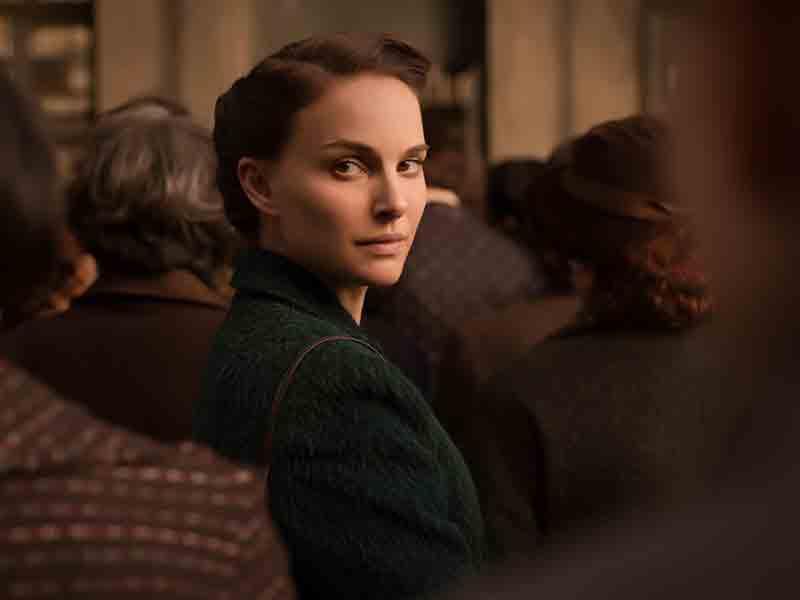For her directorial debut, Oscar-winning actor Natalie Portman returns to the city of her birth (Jerusalem) and adapts a bestselling memoir from one of Israel’s most renowned novelists Amos Oz.
A Tale of Love and Darkness, based on Oz’s 2002 autobiographical novel, confirms that Portman has potential as a visionary filmmaker. Nevertheless, if Portman continues with directing, this first feature will likely not be regarded as one of her finest efforts.
The historical drama (in Hebrew, with English subtitles) opens at Toronto’s Varsity cinema on Aug. 26. It will also play in select theatres in Montreal and Vancouver Sept.2.
Set during the last years of the British Mandate in Israel through the early years after the Jewish state’s establishment, the story focuses on young Amos (Amir Tessler) and his relationship with mother Fania (Portman).
As a boy, Amos interacted with and showed respect toward his Arab neighbours, even as tensions grew in Jerusalem during the late 1940s. He also revered his scholarly father Arieh (Gilad Kahana), who had a love for language.
But the sensitive Amos finds an especially close connection with his mother. The two spent many hours telling stories, which Portman imagines with immersive strokes. In these sequences of fantasy and fable, the colours pop and the characters (from the real world) integrate within these dream realms, urging us to connect the two spaces.
The young Tessler, natural and affecting in his film debut, capably anchors the drama. We see much of the film through his bewildered eyes, with Portman often subjecting the audience to Amos’s point-of-view. The boy can communicate much about the historical climate or a tense family-oriented moment without uttering a word.
Portman, speaking Hebrew with nary a trace of an American accent, also gives a terrific performance that rarely relies on dialogue. In the second half of the film, when Fania falls into a depression, Portman captures this withdrawal and heartache with emotional vigour.
We also get flashbacks of Fania’s difficult relationship with her mother and a harsh upbringing in Poland, exacerbated by the rampant anti-Semitism of the period. Portman’s screenplay introduces a pioneer figure early on, who becomes an object of desire for Fania and a taste of what she imagines of the “land of milk and honey.”
Despite the fine performances, A Tale of Love and Darkness is a slight adaptation of the gripping autobiography. The book is more than 500 pages, yet its film version lasts just over 90 minutes. Surprisingly, the film seems short on incident.
The focus on Amos and his relationships with his family eats up much of the screen time. The historical atmosphere and consequences surrounding Israel’s statehood is often left to brief moments of background exposition.
Also the film’s screenwriter, Portman shows she is more interested in the introspective lives of the characters than the complexities of this historical era. (Likely due to the film’s small budget, much of the 1948 war is off-screen and shown in bleary, black-and-white archival footage.)
A more seasoned director would have likely spent more time exploring how the political changes in the Jewish state impacted the characters.
One wonders if the enhanced focus on Amos’s mother was due to Portman’s involvement. It would be easier for a passion project like A Tale of Love and Darkness to get financing if an international star is in the lead.
Yet, this creative decision too often takes us away from Amos’s perspective and experience. The film is most appealing when we witness the events through the boy’s eyes.
As director, Portman has some good esthetic ideas. For a film where the theme of storytelling looms, bookshelves are a common backdrop in various settings. The literature surrounds the young Amos while foreshadowing his success as a heralded writer.
However, those who enjoyed Oz’s book may wonder why so much of it never appears on the screen. The film occasionally plods, and even feels a bit long despite its slender running time. Audiences should find a richer telling from Oz’s life on their local bookshelves.
Regardless, Portman and Tessler’s performances engage, even as we crave a more insightful look at the novelist’s early life.







